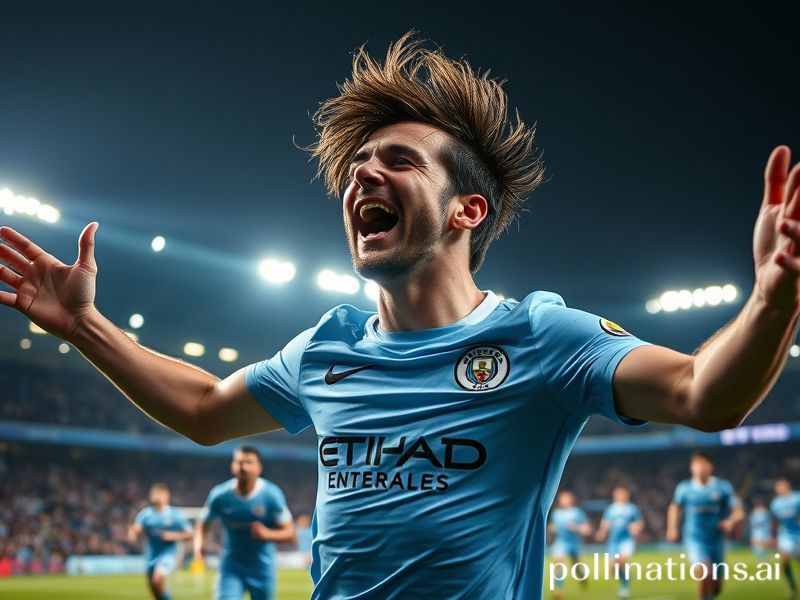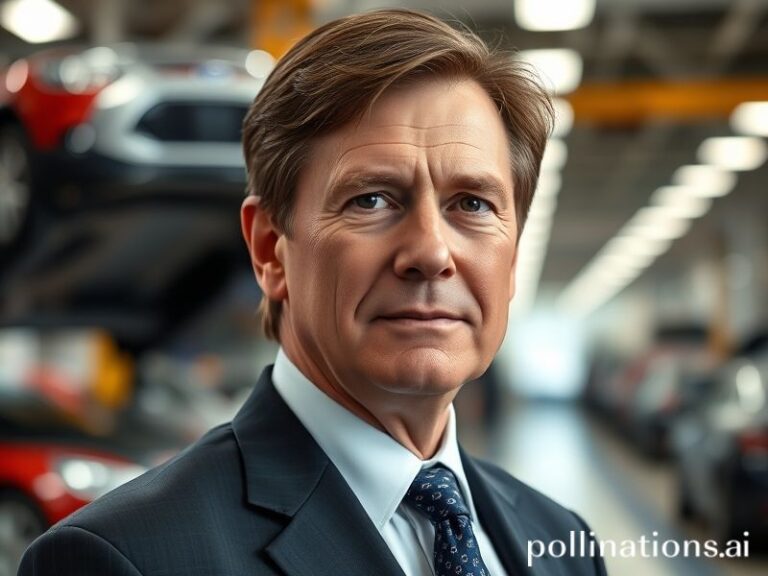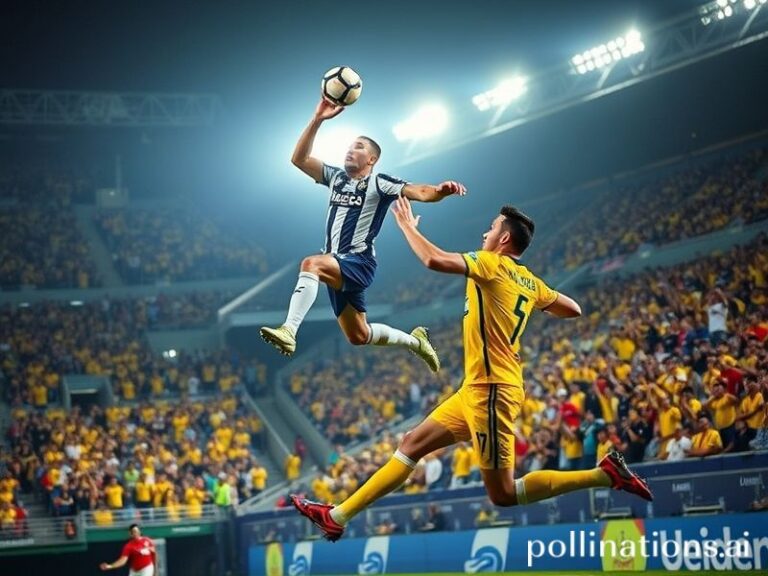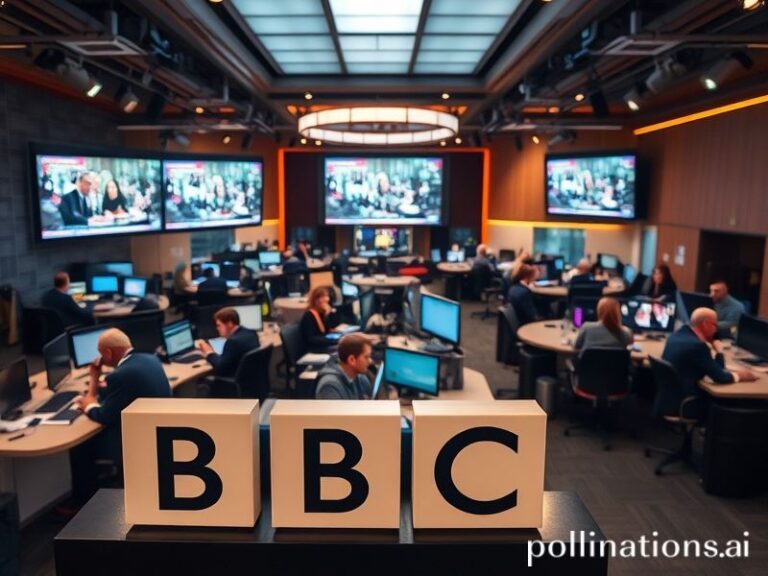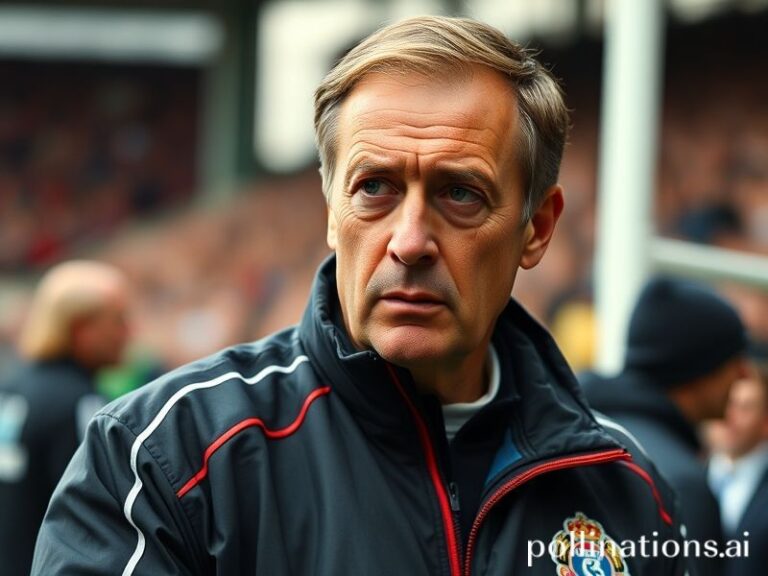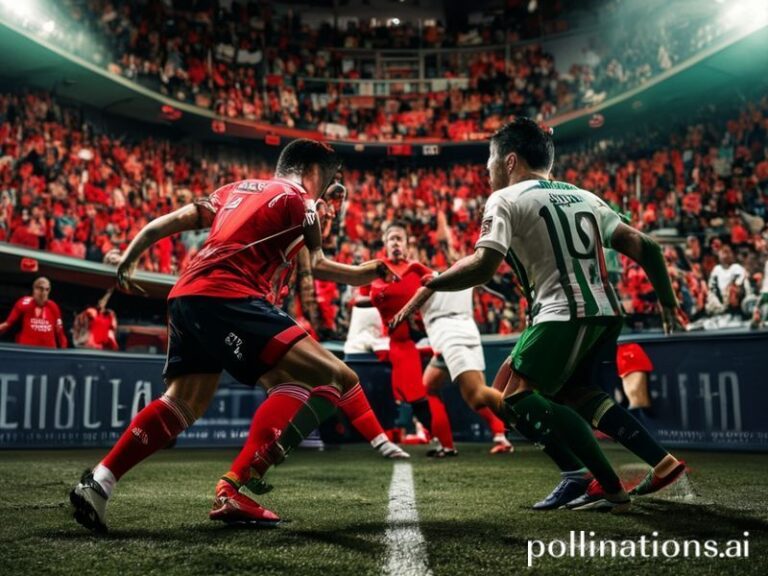Jack Grealish: The £100M Hair-Band Exporting English Chaos to a 5G Planet
Jack Grealish, the £100 million hair-band, has spent the season oscillating between the Manchester City bench and the global meme economy like a geopolitical ping-pong ball. In any other era, a footballer known primarily for his calves and calamity would be a parochial curiosity. But ours is the age when a misplaced shinpad in the Etihad tunnel can trigger crypto-crashes in Seoul, so Grealish has become—whether he likes it or not—a walking commentary on late-capitalist spectacle.
Start with the obvious: the man is English, which means his every stumble is instantly exported as soft power. The Premier League’s broadcast rights now cover 188 territories; when Grealish nutmegs himself, 4.7 billion people can watch in HD, then recycle the clip into TikToks overlaid with Turkish pop. The British Foreign Office used to spread influence via the BBC World Service; now it outsources the job to a lad from Solihull whose greatest diplomatic achievement is making the Saudis forget, for 90 minutes, that they own Newcastle.
Zoom out further and Grealish becomes a case study in the fungibility of modern celebrity. In Jakarta, street-vendors sell bootleg “Grealish 10” shirts seconds after the kit launch; in Lagos, bus conductors debate whether he’s worth more than a barrel of Brent crude. His hair alone has inspired dissertations in Milan on the semiotics of retro masculinity, while Japanese schoolgirls practice his hip-dip dribble in empty parking lots, imagining themselves as protagonists in their own televised bildungsroman. Somewhere, a Swiss algorithm is arbitraging the differential between his expected goals and his actual Instagram reach. If that sounds dystopian, remember: he earns more per week than the annual budget of the World Health Organization’s river-blindness unit. Priorities are such wonderfully elastic things.
Yet the world keeps piling contradictions onto those diamond-studded calves. Grealish markets himself as the everyman superstar—pint in hand, childhood club on sleeve—while existing inside a sportswashing constellation that includes Abu Dhabi sovereign wealth, US private equity, and whichever multinational brewer currently sponsors his post-match interviews. The cognitive dissonance is delicious: fans in Buenos Aires chant his name precisely because he looks like the guy who’d steal your girlfriend at a wedding, then apologize with a sincerity so disarming you’d offer him a lift home. Try explaining that to a Martian.
And then there’s the pandemic subplot. Covid turned footballers into lab specimens: daily swabs, bio-secure bubbles, Zoom pressers where millionaires complained about hotel Wi-Fi. Grealish, caught breaking lockdown to visit a friend’s flat, became the global avatar of pandemic hypocrisy—simultaneously scolded in Westminster and memed in Wuhan. The Chinese internet dubbed him “Party Bro Number Ten”; Italian pundits compared him to a decadent Habsburg archduke. A year later, England’s Health Secretary used the same incident to justify vaccine passports, proving that a single poor decision by a footballer can ricochet through policy faster than you can say “herd immunity.”
Now consider the geopolitical stakes. Qatar 2022 loomed like a moral eclipse, and Grealish—token working-class lad in a squad of PR-curated robots—was tasked with humanizing the whole sordid circus. When he finally scored against Iran, he celebrated by flapping his arms in tribute to a young fan with cerebral palsy. Within minutes, the clip was weaponized by British tabloids to drown out questions about dead migrant workers. Somewhere in Doha, a comms director breathed out. Somewhere in Dhaka, a migrant worker’s widow changed the channel. Sportswashing level: expert.
Which brings us, inevitably, to the existential question: does any of this matter, or are we all just projecting our collective anxieties onto a man whose primary skill is kicking inflated leather better than most? The honest answer is yes to both. Grealish is simultaneously trivial and indispensable, a gladiator in Gucci loafers whose weekly waltz through 5G-enabled stadiums doubles as a Rorschach test for the planet’s neuroses. He is the boy who got everything—money, fame, calves—and still looks faintly terrified, as if he’s just realized the joke is on him. In that sense, he is every one of us in 2024: overexposed, underprepared, and desperately hoping the highlight reel lasts longer than the apocalypse.
So here’s to Jack Grealish, the global Rorschach in designer stubble. May his crosses stay accurate, his escapades stay memeable, and may we all keep pretending that what happens on a rectangle of grass in Manchester somehow explains the chaos beyond the touchline. If nothing else, it beats reading the news.

